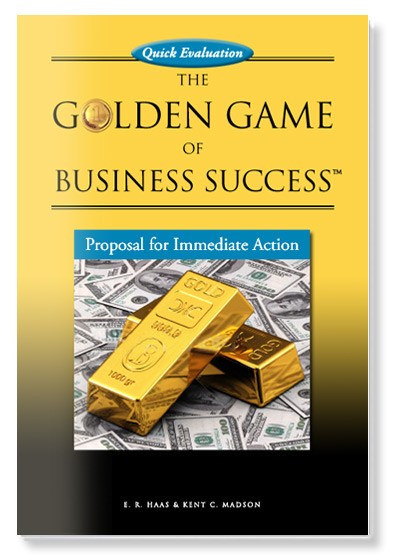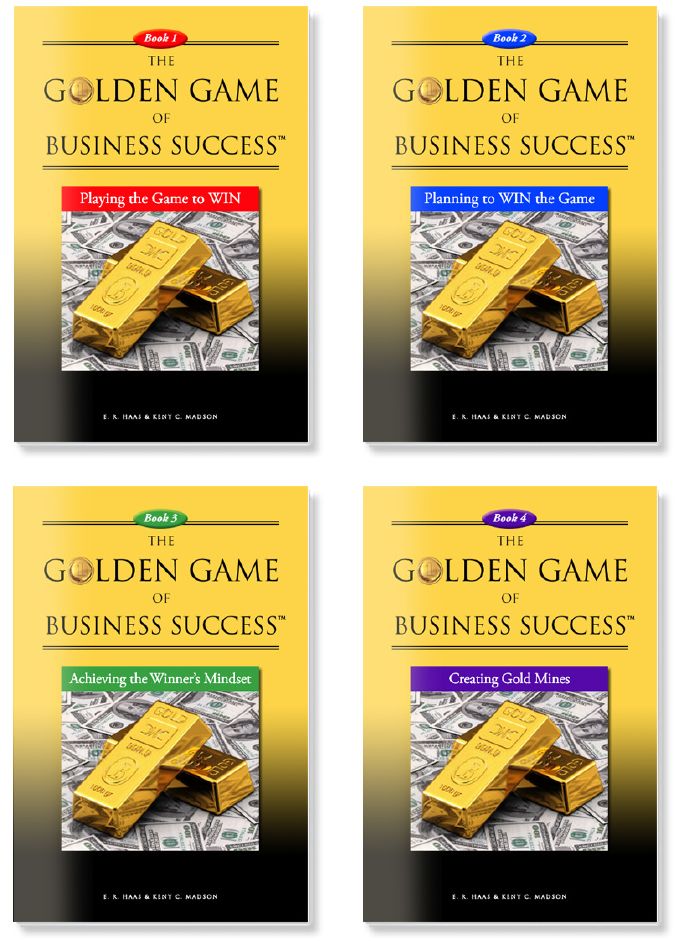A-B-C: Always Be Closing
“Human beings have an innate inner drive to be autonomous, self-determined, and connected to one another.
And when that drive is liberated, people achieve more and live richer lives.” ~ Daniel Pink
Leading A Sales Revolution: A-B-C…

As part of the launch of our 2019 Midas Touch Bundle we will be talking about big issues, but in a highly condensed format.
Today it is on the process of turning a prospect into an actual paying customer.
As we say in The Golden Game, there is a big difference between MARKETING and SELLING.
Marketing is all about values and establishing the customer’s wants, desire and need for what you have to offer.
Selling is the belly-to-belly dance where you part the prospect with money, provide him a fabulous product and service, and he presumably becomes your customer for life.
But, to get a person’s business — especially money — requires trust.
In a way, every word you say, every contact you have is “closing the sale”. Finding the need and getting your prospect to agree that he or she has the need and is ready, willing, and able to move forward with what you recommend is essential to creating a high-value customer.
So, in my world, A-B-C has a completely different meaning: Always Build Conviction.
To better understand this process, I looked up the best advice on the web, and condensed a million books on the subject down to something simple to understand.
In fact, I found a really well-written article by Claire McConnachie of SalesForce Search. In part…
Top sales reps are always closing. They get prospects to make smaller commitments, or mini-closes as they work toward the big close.
Good sales reps understand that building to a close is a process, and it involves getting a series of commitments (or smaller closes) as you work your way through the sales process.
At each step, you are further qualifying a prospect and moving them through the sales funnel. But, once you get to the final close, you have a variety of closing strategies you can employ.
Top 4 Sales Closing Techniques
The close you choose should be based on what you know about the prospect and the type of close you believe they will be most open to. Here are 4 highly effective sales closing techniques that are popular with sales reps:
1. The assumptive close:
This technique involves using a phrase or language that assumes the close is a done deal. For example, you could close with, “What day do you want to receive your shipment?”
2. The option close:
Similar to the assumptive close, rather than asking for a prospect’s business directly, you ask them which option they prefer. For example, you could close with, “Do you want your shipment delivered on Wednesday or Friday?”
3. The suggestion close:
If you have good rapport with the prospect and they view you as a trusted expert, a suggestion close is a good approach. You could close with, “Based on what you have told me about your operations, I would suggest you receive orders on Fridays. Does this work for you?”
4. The urgency close:
Creating a sense of urgency places pressure on the prospect to make a decision, especially if you have identified that the client needs to make a decision quickly and is working on a short timeline. Think of the “limited time offer” as an example. However, unlike other closing techniques, this should only be used occasionally and by experienced sales reps who have a strong relationship with a client.
The prospect to customer tango is a fast-flowing dance where you lead, the prospect follows, and you both have FUN!
Think about merging the pro’s with the amateurs on Dancing With The Stars.
The professional dancer knows all the moves, has the experience, talent and desire to be the best — the winner of the Mirror Ball.
The amateur is there to learn, try, learn, perform, make mistakes, learn from the mistakes, perfect his or her posture, moves, everything — and the result is a new person who is excited to do the dance!
If you are not excited to help your prospects learn to dance, you will have a hard time closing deals.
But, if you are excited to learn, try, and perfect your techniques, foot-work, and approach, you will find a path into the customers heart and mind!
How do YOU see the sales process in your business?
Is it a finely crafted dance, or more of a free for all?
Success ultimately comes down to this question…
Do you have a real SALES STRATEGY…
or is your business just a tangle of TACTICS you gathered over time?
To make your business into the shining star on the hill takes mental toughness, skill and pure street smarts.
After all, there’s smart business and there’s dumb business.
- Dumb business is when you work insane hours, always in the catch-up mode.
- Dumb business is having little control over day to day operations. In other words, the business is controlling you.
- Dumb business is needlessly losing market share to a competitor for all the wrong reasons.
- Dumb business is failing to read the market correctly, grow too fast, and greatly exceed your capabilities.
- Dumb business is when you work IN your business and rarely work ON your business.
Smart business is the polar opposite of dumb!
Smart business is having a constantly-evolving strategy to WIN… not just “hope and work hard”… but to actually PLAN to WIN… then PLAY to WIN.
If you need help, get with the program and join our next MasterMind Session.
E. R. Haas, CEO The TQ Smart Family of Companies
There will be more Millionaires and Billionaires created
this year than at any time in history.
Why not you? Why not now?
Check out our 2019 Midas touch Bundle.
Just $97 brings you a power tool for tremendous success!

Click Books To Learn More
Category: Business Growth, Featured





